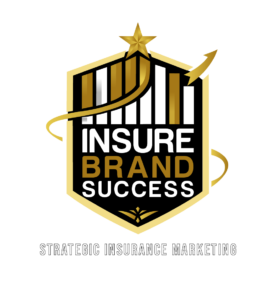In the highly competitive world of insurance, your agency’s online presence plays a crucial role in determining your success. A strong digital presence not only helps you stand out from competitors but also ensures that potential clients can easily find and trust your services. Search Engine Optimization (SEO) is a powerful and cost-effective strategy to attract high-quality leads, improve your website’s visibility, and drive sustainable growth for your business. By mastering SEO, you can enhance your agency’s credibility and expand its reach in a rapidly evolving digital landscape. This comprehensive guide provides 10 actionable SEO tips specifically tailored for insurance agencies, equipping you with the tools and strategies needed to stay ahead of the competition in 2025 and beyond.
1. Conduct Comprehensive Keyword Research
Keyword research is the cornerstone of any effective SEO strategy. By targeting the right keywords, your agency can attract potential clients who are actively searching for insurance services.
- Long-Tail Keywords: Focus on specific terms like “affordable auto insurance in [City]” to capture highly qualified traffic.
- Competitor Analysis: Use tools like SEMrush or Ahrefs to identify keywords your competitors are ranking for.
- Local Keywords: Incorporate geographic phrases such as “life insurance brokers near me” or “business insurance in Dallas.”
For broader keyword integration, explore SEO for Insurance Brokers to refine your strategy.
2. Optimize Your Website for Mobile Users
With most searches happening on mobile devices, a mobile-friendly website is non-negotiable.
- Responsive Design: Ensure your site looks and functions seamlessly across devices.
- Fast Load Times: Optimize images, leverage caching, and use a Content Delivery Network (CDN) to improve speed.
- Simplified Navigation: Use drop-down menus and clickable phone numbers for better mobile usability.
3. Claim and Optimize Your Google My Business Profile
Local SEO is crucial for insurance agencies targeting clients in specific regions. A well-optimized Google My Business (GMB) profile helps your agency stand out in local searches.
- Accurate Information: Include your agency’s name, address, phone number (NAP), and business hours.
- Client Reviews: Encourage satisfied clients to leave positive reviews.
- Local Keywords: Add location-based keywords to your GMB description.
For more resources, visit the Small Business Administration’s marketing guide.
4. Publish High-Quality, Relevant Content
Content marketing is a proven way to engage your audience and improve search engine rankings.
- Blog Posts: Write articles that address common client questions, such as “What’s the difference between term and whole life insurance?”
- Guides and Checklists: Provide valuable resources like “Top 10 Insurance Tips for Small Business Owners.”
- Video Content: Share videos explaining complex topics or showcasing client success stories.
Align your content with Digital Marketing for Insurance Agencies for a cohesive strategy.
5. Optimize On-Page SEO Elements
On-page optimization ensures that each page of your website is fully optimized for search engines and user experience.
- Meta Titles and Descriptions: Write compelling, keyword-rich titles and meta descriptions.
- Headers and Subheaders: Use H1, H2, and H3 tags to structure your content effectively.
- Internal Linking: Link to related pages within your site, such as Client Acquisition and Retention Programs, to guide users and improve SEO.
6. Build a Strong Backlink Profile
Backlinks from reputable websites signal to search engines that your content is trustworthy and authoritative.
- Guest Blogging: Contribute articles to industry-related websites to earn quality backlinks.
- Local Directories: List your agency on trusted directories and ensure your information is consistent.
- Partnerships: Collaborate with local businesses or organizations for link-building opportunities.
Check out the National Association of Insurance Commissioners for additional networking and compliance resources.
7. Leverage Social Media for SEO
While social media doesn’t directly impact SEO rankings, it amplifies your content’s reach and drives traffic to your website.
- Share Blog Posts: Promote your content across platforms like Facebook and LinkedIn.
- Engage with Followers: Respond to comments and questions to build relationships.
- Targeted Ads: Use paid social campaigns to attract specific demographics.
Learn more about effective Social Media Strategies to complement your SEO efforts.
8. Monitor and Improve Website Performance
Regularly analyze your website’s performance to identify areas for improvement.
- Google Analytics: Track metrics like bounce rates, session duration, and traffic sources.
- Search Console: Monitor keyword rankings, impressions, and click-through rates (CTR).
- Heatmaps: Use tools like Hotjar to understand how users interact with your site.
9. Focus on Local SEO
Local SEO is critical for insurance agencies that rely on community-based clients.
- Local Content: Publish blogs or pages targeting specific neighborhoods or cities, such as “Top Insurance Needs for Houston Residents.”
- Localized Keywords: Incorporate geographic terms into your meta tags, headers, and content.
- Citations: Ensure your agency’s NAP is consistent across directories and review platforms.
10. Stay Updated on SEO Trends and Algorithms
SEO is constantly evolving, with search engines frequently updating their algorithms. Staying informed helps your agency adapt and maintain a competitive edge.
- Industry Blogs: Follow SEO-focused blogs like Moz or Search Engine Journal.
- Webinars and Workshops: Attend events to learn about emerging trends and tools.
- Professional Partnerships: Work with experts like Insure Brand Success to keep your strategy cutting-edge.
For regulatory updates and industry insights, visit the Insurance Information Institute.
Case Studies: SEO Success Stories for Insurance Agencies
Case Study 1: Local SEO Optimization
An auto insurance agency optimized their Google My Business profile and added localized content to their website. Within six months, they saw a 45% increase in local search traffic and a 25% boost in lead inquiries.
Case Study 2: Content Marketing Impact
A life insurance provider focused on creating blogs addressing common questions about retirement planning. This strategy increased organic traffic by 40% and improved user engagement metrics like time on page.
FAQs
1. Why is SEO important for insurance agencies?
SEO (Search Engine Optimization) is essential for insurance agencies because it increases your website’s visibility in search engine results. This means that when potential clients search for services like “affordable health insurance” or “business insurance brokers near me,” your agency appears at the top of the list. SEO not only drives high-quality leads to your website but also establishes your credibility and trustworthiness in a competitive online market. By optimizing for the right keywords and user experience, you position your agency as a top choice.
2. How long does it take to see results from SEO?
SEO is a long-term strategy that requires patience and consistency. While some improvements, such as increased traffic and slightly better rankings, may be visible within a few months, achieving significant results often takes 6–12 months. Factors influencing this timeline include the competitiveness of your industry, the current state of your website, and the consistency of your SEO efforts. Once established, SEO provides lasting benefits, including a steady flow of organic traffic without additional advertising costs.
3. What are the best tools for SEO?
The right tools can make managing and optimizing your SEO efforts much easier. Popular options include:
- Google Analytics: Tracks website traffic, user behavior, and conversion data.
- SEMrush: Provides insights into keyword opportunities, competitive analysis, and site audits.
- Ahrefs: Specializes in backlink analysis and monitoring, keyword tracking, and content research.
- Moz: Offers tools for tracking rankings, on-page SEO optimization, and domain authority analysis. Using these tools helps you make data-driven decisions to refine your SEO strategy and achieve better results.
4. How can local SEO benefit my agency?
Local SEO is critical for connecting with clients in your immediate area. It ensures that your agency appears in location-based searches, such as “insurance agencies near me” or “local car insurance brokers.” Optimizing your Google Business Profile (formerly Google My Business) with accurate contact details, customer reviews, and high-quality images can improve your chances of appearing in the Local Pack—a highly visible section of search results. This approach increases foot traffic, phone calls, and online inquiries from local clients.
5. What’s the role of backlinks in SEO?
Backlinks are links from external websites that point to your site. They play a significant role in SEO by signaling to search engines that your content is valuable and authoritative. Backlinks from reputable sources, such as industry blogs or local news outlets, can improve your rankings and domain authority. To build quality backlinks, focus on creating shareable content, such as informative articles or infographics, and establishing relationships with other websites in your niche.
6. Can social media improve my SEO efforts?
While social media activity does not directly influence search engine rankings, it plays a supporting role in your SEO strategy. Sharing your website content on platforms like Facebook, LinkedIn, and Twitter can drive traffic to your site, which may increase user engagement and signals to search engines that your content is valuable. Additionally, strong social media presence builds brand awareness and trust, making users more likely to engage with your site in the future.
7. Should I hire an SEO professional?
If you want to ensure your SEO strategy is effective and aligned with industry standards, partnering with an expert can be a wise investment. Professionals like Insure Brand Success understand the unique challenges and opportunities within the insurance industry. They can handle complex tasks such as technical SEO audits, keyword research, and backlink building while ensuring compliance with industry regulations. This allows you to focus on serving your clients while benefiting from a strong online presence.
Why Invest in SEO Now?
By implementing these strategies, insurance agencies can unlock the full potential of SEO to attract more clients, improve online visibility, and achieve sustainable growth. Whether you’re optimizing for local searches or tracking performance with tools like SEMrush and Ahrefs, SEO is an investment in the future success of your agency. For expert guidance and tailored solutions, contact Insure Brand Success to elevate your SEO strategy and deliver measurable results. For further insights, explore resources like Google’s SEO Starter Guide or tools provided by Moz.
Your journey to better online visibility starts today!





